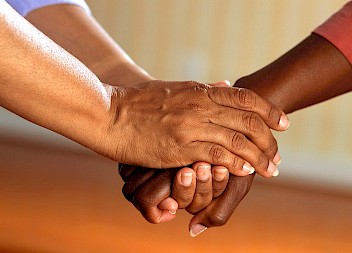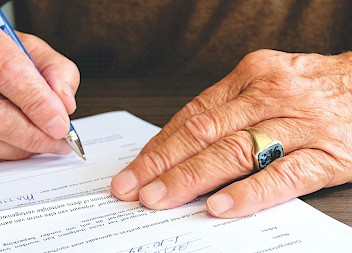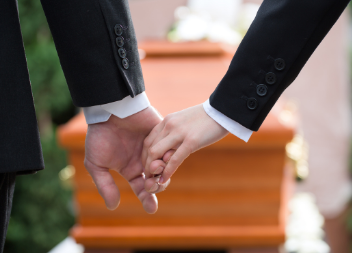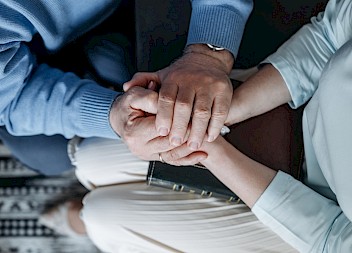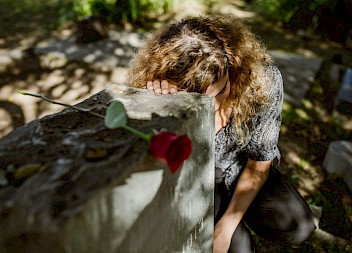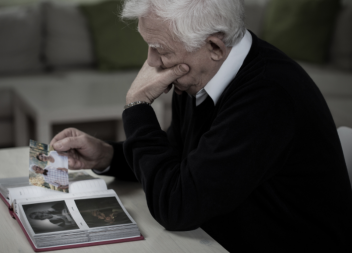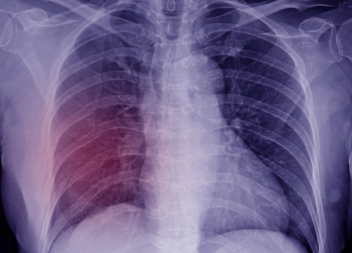The principal purpose of a clinical negligence claim is to seek justice and compensation for patients injured or harmed as a direct result of substandard medical care, otherwise known as primary victims.
But what about those around the claimant who have been left mentally scarred from witnessing the damage caused - the secondary victims?
Updated February 2024
Supreme Court ruling significantly limits secondary victim claims
There has been a landmark development in medical negligence caselaw as the Supreme Court threw out three conjoined appeals relating to secondary victim claims.
All three cases related to whether secondary victims - family members of medical negligence victims - can claim for psychiatric harm after seeing their loved ones die or be severely injured due to medical error.
The Supreme Court handed down judgement on Paul and another (Appellants) v Royal Wolverhampton NHS Trust (Respondent) on 11th January 2024, dismissing the three cases with a majority of six to one. This decision sets a precedent for the future of secondary victim claims, one which Lord Burrows called an ‘unwanted backward step’ when he dissented from the other judges in giving his judgement at the UKSC hearing.
The UKSC decision effectively excludes most, but not all, claims by secondary victims in a medical context. Conversely, the decision also revises the test for claims by secondary victims in personal injury cases, making such claims easier. The decision has ridden roughshod over 30 years of carefully built-up case law. There are likely to be further courtroom battles in the future over what particular claims can now be brought.
Consequently, there are currently many cases that are being abandoned on behalf of those who have suffered terrible loss in a clinical context in relation to their deceased loved ones. This can only add insult to injury for those involved in such cases and will add to their sense of injustice, as well as serving to prolong existing grief disorders.
If these claims had been concluded a few years ago, they would have been successful. But as soon as it was known that the three cases were going to be tested in the UKSC, multiple claims were put on hold pending the decision making.
At Medical Solicitors, we have a handful of cases where we have regretfully had to deliver this bad news and recommended abandonment.
Main takeaways from the UKSC decision
- Liability to secondary victims is limited in all circumstances to deaths caused by ‘accidents’.
- An accident is an ‘external event’ leading to injury to the primary victim. It is not the development of a disease process.
- The secondary victim establishes liability by being present at the ‘scene’ of the accident or its immediate aftermath.
- The accident need not be horrifying in nature.
- The secondary victim need not suffer harm due to ‘shock’.
- Doctors don’t owe relatives of a primary victim a duty of care to protect them from such a risk of witnessing harm or death due to a negligent act.
What are primary and secondary victims?
A ‘primary victim’ in a claim is the person who directly suffers the injury. So, in a personal injury claim this would be the person injured in, say, a road traffic accident. In a medical negligence claim, this would be, for example, a mother who is neglected whilst giving birth.
A ‘secondary victim’ is the person who witnesses the primary victim's injury, or the immediate aftermath. So, in a personal injury claim, this may be a loved one who witnesses the road traffic accident, or its immediate aftermath. In a medical negligence claim, in the example of a mother neglected whilst giving birth, a secondary victim would be the loved one supporting them in the delivery room.
What is the criteria for a Secondary Victim Claim?
The Supreme Court ruled that there is no longer the need for ‘sudden shock’ or an event that is ‘horrifying’, parameters that have previously been used to define a secondary victim claim.
Instead, there will now be three criteria that will need to be met:
- There is, or was, a sufficiently close tie of love and affection between the claimant and the person(s) suffering physical injury (i.e. ‘proximity’ further discussed below). This means no bystanders will be able to claim.
- They were present at an accident of immediate aftermath, with ‘accident’ meaning an external event negligently caused.
- The psychiatric injury suffered was caused by the direct perception of the accident or immediate aftermath.
Paul, Polmear and Purchase. What were these cases about?
All three conjoined cases involved the failure to diagnose illness in the primary victim (the patient) leading to their deterioration and death. Once the discussion about how the illnesses had come about was removed, the facts of the cases were strikingly similar.
In Paul v Royal Wolverhampton NHS Trust, the claimants, aged nine and 12, witnessed their father die of a heart attack over a year after the defendant negligently failed to diagnose coronary heart disease. The case was initially struck out on the basis that the two children were not present when the missed diagnosis occurred. However, this was later overturned on grounds that the heart attack was the first occasion on which the damage (caused by the hospital's negligent failure to diagnose and treat his heart condition) had manifested.
In Polmear v Royal Cornwall Hospitals NHS Trust, both parents witnessed their six-year-old daughter die following a severe attack of breathlessness. Almost a year previously, the young girl had been referred to the defendant for ECG monitoring having had increasing episodes where she could not catch her breath, appeared pale and then later turned blue. Because she had no episodes during monitoring, her symptoms were put down to exertion. However, it later transpired she had a blockage in her pulmonary veins which subsequently led to her death.
In Purchase v Ahmed, a mother came home to find her 20-year-old daughter unresponsive in bed. The daughter had been unwell for a few weeks and developed weakness, dizziness and difficulty in breathing, which was rapid, shallow and noisy. A diagnosis of respiratory tract infection was made by the defendant at an out-of-hours clinic. She became gravely unwell a few days later, resulting in her mother attempting CPR during which blood and bodily fluid spilled out. She could not be resuscitated and died of extensive bilateral pneumonia with pulmonary abscesses. The claimant argued that there was a negligent failure to properly assess and treat her daughter’s symptoms.
What types of clinical negligence claim are now excluded from secondary victim claims?
The examples, above from the three cases of Paul, Polmear and Purchase outline various scenarios where claims can no longer be made.
All cases are now excluded where death is associated with the patient having a pre-existing illness or disease, and the death occurs after a healthcare provider has omitted to provide a diagnosis/treatment to prevent death.
In addition, in pregnancy cases, it is unlikely that failure to diagnose pregnancy diseases, such as gestational diabetes or intra-uterine growth restriction of a baby, will give rise to a claim.
When can you claim as a secondary victim in medical negligence cases?
Claims may still be possible where there has been a positive negligent act by a healthcare provider that has caused injury to the primary victim.
Some examples include:
- Injection of an incorrect drug, or overdose of a drug, killing the patient or causing a severe reaction.
- Giving Syntocinon to a mother in labour in the presence of a sinister CTG trace causing damage to baby.
- Fracturing a baby’s skull with forceps.
- Substandard surgical care during caesarean section, causing extensive maternal bleeding causing disability or death.
In all of the examples above, the secondary victim must have witnessed the negligent event leading to the injury to the primary victim (the patient).
Can a relative of the injured patient ever be a primary victim?
Yes, under a rare exception of being an ‘involuntary/unwilling participant’ in the event causing the injury to the patient, and if injury to the relative was reasonably foreseeable.
Examples include:
- A parent who is given a negligent course of treatment for their child which they then administer.
- The relative who was concerned that treatment was wrong but didn’t speak up about it.
- A father giving encouragement to a labouring mother in the delivery room.
In all of the above examples, it will be necessary to show that the participation in the course of treatment put the person in the position of feeling a degree of responsibility and guilt for the outcome. They cannot be purely a bystander but must have played some part, whether that is by administering medication or being involved in the process and decision making.
The relevance of the Human Rights Act
Another avenue to be explored in a limited number of cases will be Article 2 of the Human Rights Act. Article 2 is engaged where a healthcare provider has a positive duty to prevent patients from injuring themselves and putting their lives in danger, typically in relation to mental health patients. If a patient escapes from a mental health unit, or is released negligently, and kills themself then immediate family members with be victims.
Can I make a secondary victim claim?
If you have witnessed a traumatic or fatal event that happened to a loved one and have had to seek medical advice on your mental health as a consequence, then we may be able to help you. As previously mentioned, there are strict controls in place which need to be met in order for a claim to be successful.
If your claim is successful, you would be able to claim compensation known as general damages for your pain and suffering, i.e., your psychiatric illness. This will be determined by your ability to cope with work/life, the impact your mental health has had on your relationships, as well as the future prognosis of your condition.
The court uses guidance called the Judicial College Guidelines (JCG) which has four brackets for psychiatric compensation as follows:
Less severe –the duration of symptoms are less than 12 months and the extent to which the symptoms have affected someone’s daily activities and sleep is low level (£1,440 – £5,500)
Moderate –the symptoms have affected someone’s daily activities, life, work and relationships but where the medical evidence suggests good progress towards recovery will be made. The extent to which treatment will assist in the recovery of symptoms together with someone’s future vulnerability to relapse is also considered in this bracket. (£5,500 – £17,900)
Moderately severe –the symptoms amount to a disability affecting someone’s life in a permanent or long-standing basis preventing a return to comparable employment. (£17,900 – £51,460)
Severe – the most extreme of cases where the outlook for someone’s recovery is extremely poor (£51,460 – £108,620)
These figures are updated when a new edition of the Judicial College Guidelines is published.
About Medical Solicitors
Our friendly and compassionate team of specialist lawyers focus solely on medical negligence claims and have extensive experience of helping clients secure compensation for their injuries.
We conduct most of our claims under ‘No Win, No Fee’ agreements, also known as Conditional Fee Agreements. So, our clients don't have to worry about how they can afford to pay for a secondary victim claim. You have nothing to lose in speaking to us.


